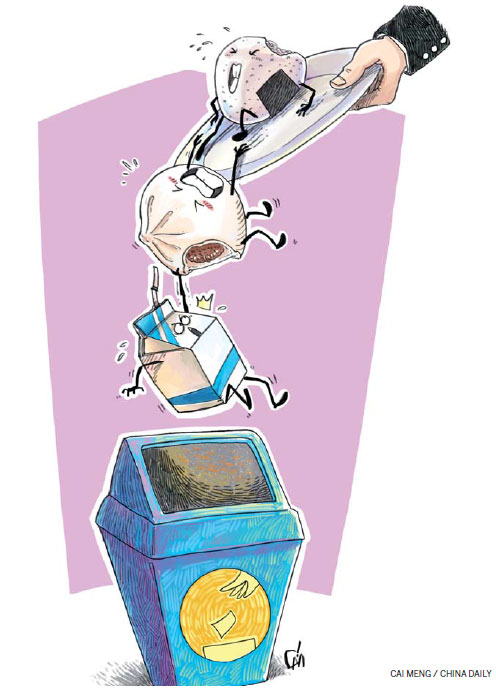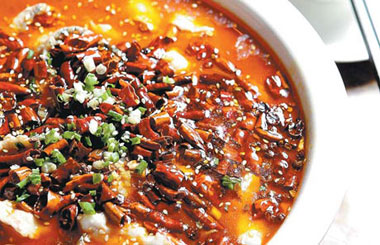Reducing waste can boost food security
Updated: 2016-01-29 07:50
By Cecilia Tortajada, Mat Thew J. Kastner and Asit K. Biswas(China Daily Europe)
|
|||||||||||

More cold storage and better roads can cut post-harvest losses, but consumers need to be less profligate
During the 13th Five-Year Plan (2016-20), China intends to pursue a new development mode that is "higher in quality, more efficient, fairer, and more sustainable". Agriculture will be fundamental to this, given its significance to food and environmental security.
China produces about 75 percent of the combined value of production of Organization of Economic Cooperation and Development countries. Globally, it is the largest producer of food such as potatoes, wheat, tomatoes, rice and apples. Its own agricultural products are supplemented by imports of agrofood products from all over the world to ensure food security.
But food security not only means enough food is available, but also that the food that is available is not overconsumed or wasted. At present, industrialized Asia (China, Japan and South Korea) contributes 28 percent of the food wasted in the world, an estimated 1.3 billion metric tons a year.
For industrialized Asia, three stages of the supply chain need special attention: post-harvest handling and storage, distribution and consumption. The handling and storage stage accounts for 20 percent of the food wasted in the region, while another 14 percent of food is lost at the distribution stage, and 31 percent is wasted during consumption.
That vegetable losses in industrialized Asia account for about 11 percent of global food losses is of special concern, as this region accounts for more than 50 percent of global production and consumption.
Today's Top News
New China-led bank 'will be inclusive'
Horizons expand for Chinese companies in France
Negotiating political transition in Syria 'possible'
Man arrested with handguns at Disneyland Paris
Record number of Chinese tourists visited UK in 2015
Foreigners fill in Spring Festival courier gap
UK adventurer dies on solo journey
Families of expats in China can stay longer
Hot Topics
Lunar probe , China growth forecasts, Emission rules get tougher, China seen through 'colored lens', International board,
Editor's Picks

|

|

|

|

|

|






